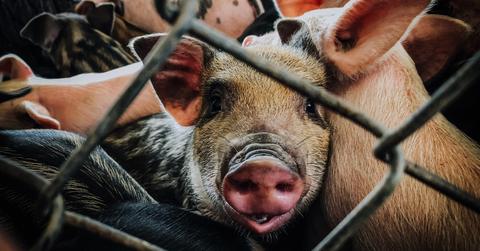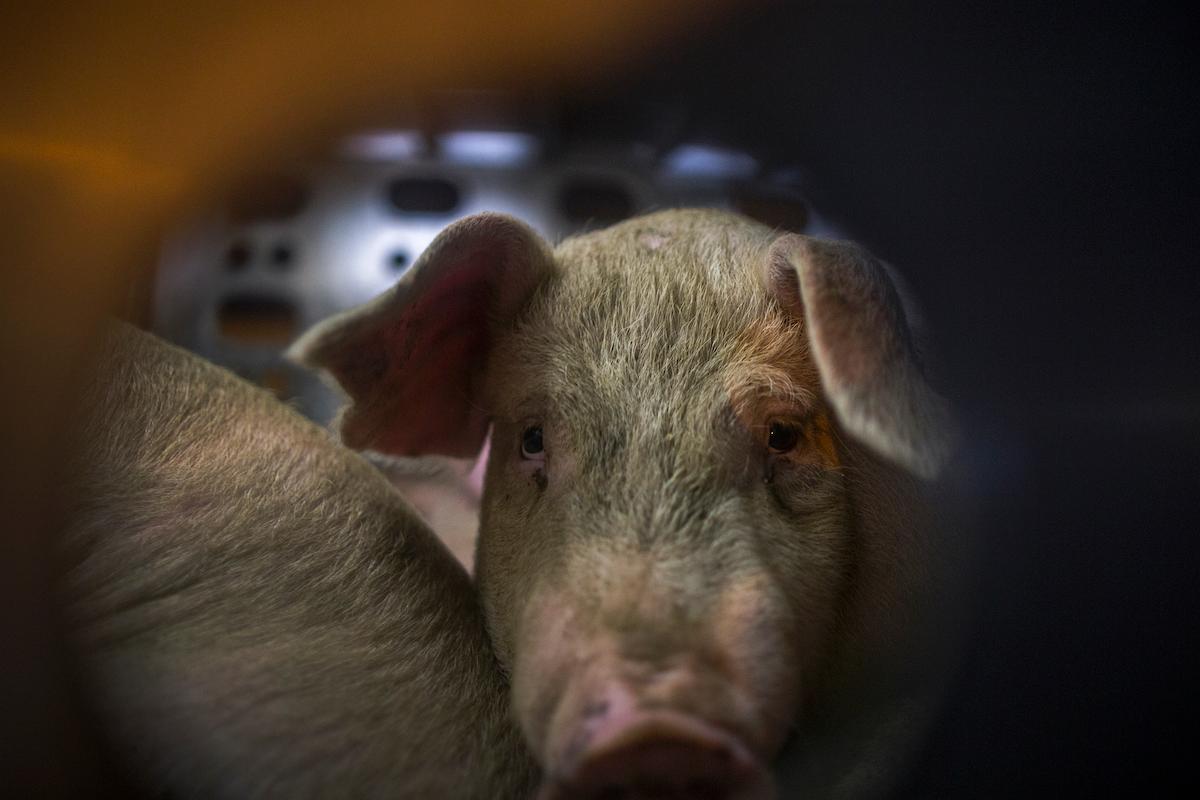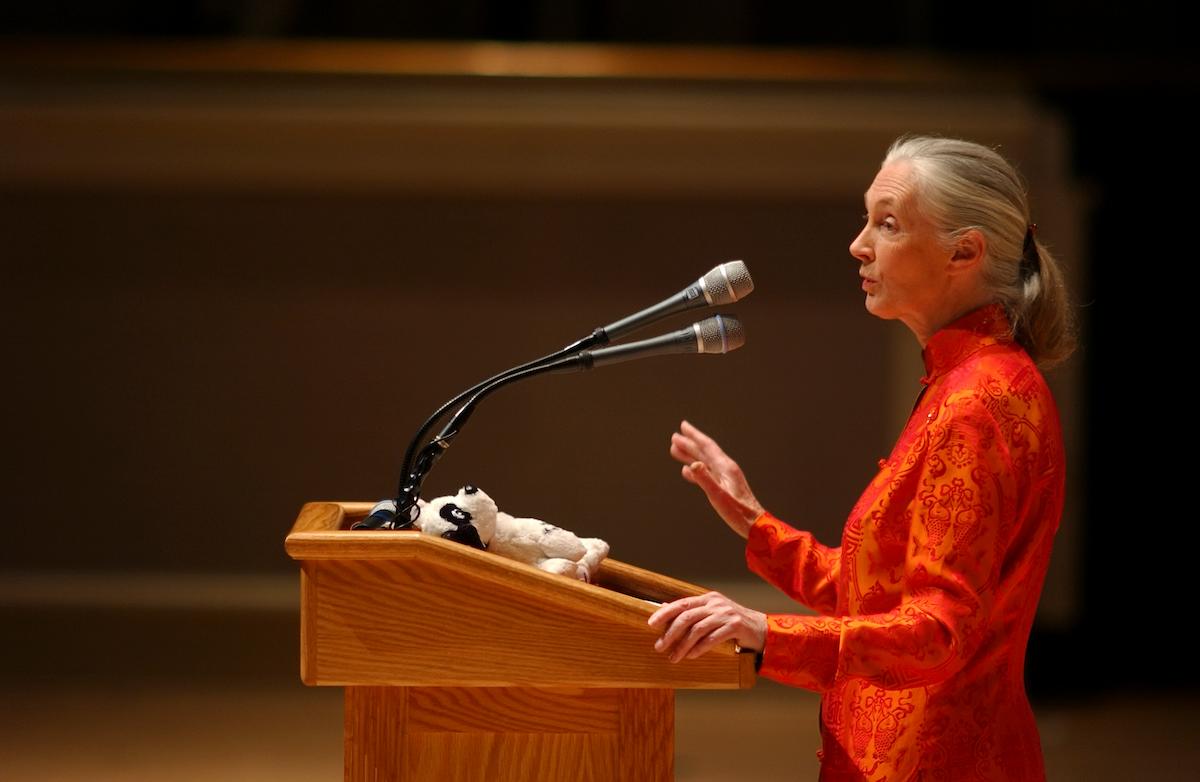New Strain of Swine Flu Presents “Next Potential Pandemic” — Here's How We Can Prevent It
A new H1N1 swine flu discovered in China could cause the next pandemic if we don't take action.
Updated July 1 2020, 11:06 a.m. ET

We’re still far from the end of the current pandemic – but before we know it, we could be facing a second one. A new swine flu strain has emerged in China that pigs could potentially pass onto humans — and according to the scientists who discovered it, some major changes need to be made to prevent the G4 EA H1N1 virus from becoming the “next potential pandemic.”
Scientists discovered a new strain of the H1N1 swine flu.
The group of scientists, most of whom are based at laboratories and universities in China, shared their findings in a study, published the journal PNAS this week. As they explain, pigs are key hosts for pandemic flu viruses, and constantly monitoring flu viruses in pigs is “essential for early warning and preparedness for the next potential pandemic.”
As reported by Science Magazine, the scientists analyzed almost 30,000 nasal swabs taken between 2011 and 2018 from pigs at slaughterhouses across 10 Chinese provinces. A total of 179 different swine influenza viruses were discovered in the sample, most of which were G4 (or one of five other G strains), according to the news outlet.
This new flu virus in pigs could turn into a pandemic if we don’t take precautions.

The researchers explain that the new flu in question, being referred to as G4 EA H1N1, is a new “genotype 4 (G4) reassortant Eurasian avian-like (EA) H1N1 virus.” The new virus shares genetic similarities with the virus at the center of the 2009 H1N1 swine flu pandemic — but not enough similarities to mean anyone is immune to this new virus.
And some people have already contracted it.
A sample of 338 of China’s “swine workers,” aka those who work on pig farms or in pig slaughterhouses and are regularly exposed to pig blood, urine, and feces, had their blood tested for G4 EA H1N1 virus — and 10.4 percent (35 out of 338) of employees tested positive. Rates were higher among young adults ages 18 to 35, of whom 20.5 percent tested positive, suggesting that the G4 EA H1N1 virus has “acquired increased human infectivity.”
“Such infectivity greatly enhances the opportunity for virus adaptation in humans and raises concerns for the possible generation of pandemic viruses,” the researchers wrote.
Here’s how we can prevent the next swine flu pandemic.
As the scientists behind the study put it, “Controlling the prevailing G4 EA H1N1 viruses in pigs and close monitoring in human populations, especially the workers in [the] swine industry, should be urgently implemented.”
But rather than trying to "control" the virus amongst pigs and "monitor" the virus in humans, wouldn’t it be more effective to cut the virus off at the source? Rather than putting living beings in danger, wouldn’t it be safer, easier, and more ethical to simply stop breeding pigs just to kill and eat them? Rather than risk another devastating pandemic, couldn’t we just eat something else?
We must stop exploiting animals and nature.
A group of health organizations, including the UN, WHO, and WWF International recently co-authored an op-ed in The Guardian titled “Coronavirus is a warning to us to mend our broken relationship with nature.”
"We must recognize that the way we currently produce and consume food, and our blatant disregard for the environment more broadly, has pushed the natural world to its limits," they wrote. “Rebalancing our relationship with nature will require concerted effort and determination. But it will also create a healthier and more prosperous future for people and planet, and put us in a better position to prevent the next pandemic. Surely, it is an effort we should all be willing to make.”
Jane Goodall says humans need to start respecting animals to prevent the next pandemic.

Esteemed anthropologist Jane Goodall has spoken about how humans need to change several times throughout the coronavirus pandemic.
“I think it’s time we begin realizing [COVID-19 happened] because we have disrespected animals and disrespected the environment,” Goodall recently told UK’s Channel 4.
“One of the lessons learnt from this crisis is that we must change our ways," Goodall said at an online event hosted by Compassion in World Farming, according to The Guardian. "Scientists warn that to avoid future crises, we must drastically change our diets and move to plant-rich foods.”
“We have brought this on ourselves because of our absolute disrespect for animals and the environment,” Goodall continued. “Our disrespect for wild animals and our disrespect for farmed animals has created this situation where disease can spill over to infect human beings.”
COVID-19, which has infected more than 10 million people worldwide since December 2019, reportedly started in a live animal market (aka a “wet market”) in Wuhan, China, so a factory farm or slaughterhouse could easily be the origin of the next pandemic — but it doesn’t have to be. With so many delicious plant-based alternatives to meat emerging, there’s no better time than now to rethink our individual consumption of animals.
The best way to prevent contracting or spreading coronavirus is with thorough hand washing and social distancing. If you feel you may be experiencing symptoms of coronavirus, which include persistent cough (usually dry), fever, shortness of breath, and fatigue, please call your doctor before going to get tested. For comprehensive resources and updates, visit the CDC website. If you are experiencing anxiety about the virus, seek out mental health support from your provider or visit NAMI.org.